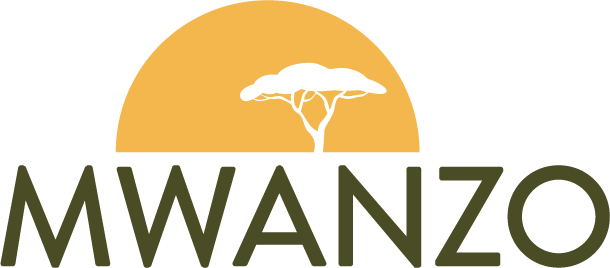A Long Winter in Kenya
This past week, partly to escape the negative cloud of current news, I re-watched the film version of C.S. Lewis’ The Lion, the Witch, and the Wardrobe. I was struck by the parallel between Narnia’s 100 years of bitter, relentless winter and our recent years, especially this pandemic year. It has indeed been a long winter.
As a new member of Mwanzo’s board, I have been scrambling to deepen my understanding of Mwanzo’s mission, vision, and work. Then I started to wonder…how has the village of Rabuor experienced and endured this winter? Had the Mwanzo Education Center closed? Was virtual learning even possible in Rabuor? What about the other programs that support subsistence farming and planting trees? How about the Village Savings and Loan program that had birthed Mwanzo’s catering service, and the poultry project?
Through conversations with Loyce Ong’udi, founder and Executive Director of Mwanzo, and reading reports from Jonathan Aluoka, the Kenya Country Manager of Mwanzo, and Margaret Otieno, the Headteacher at MEC, I learned that hope does indeed have a home through Mwanzo, even during this dark pandemic winter.
Kenya has reported 102,000 COVID-19 cases and 1,776 deaths as of Jan 28,2021. Rabuor has not escaped the ravage of this disease. Fortunately, this beloved community has a deep cultural legacy of mutual support and interdependence. For generations they absolutely depended on this foundation which was critical to surviving the last generation’s devastating HIV/AIDS pandemic.
When COVID-19 compelled the Kenya Ministry of Education to close schools in March 2020, MEC teachers and staff quickly pivoted in response. Previously, the more than 200 students had received two nutritious meals each day at school. Women raised crops on subsistence farms and regularly took any surplus to market where they bartered and sold for needed supplies. The pandemic halted their weekly entrepreneurial meetings, church and school gatherings as well as the ability to go to market. Instead of attending school, many children returned to work in the fields.
Although school was closed, teachers continued to work using the new printer to create homework for distribution to students. They also identified families with the highest need and began to deliver food, text and story books and other supplies as they followed up with students. Without phone or internet service, they sometimes walked six kilometers to visit homes. By September, 200 families had received assistance! Mwanzo also coordinated community outreach education about sanitization, health and safety measures and COVID-19 symptoms. Mwanzo’s donors, and an emergency relief grant to Mwanzo from One Day’s Wages, made much of this possible.
Headteacher Margaret Otieno recalled in September, “All in all, the gifting process has been a big blessing to many families and personally touched me and the Mwanzo staff, our parents, students and the community as a whole…many lives have been changed by the food and various gifts such as masks and sanitizer. We have put smiles on people’s faces and hearts.”
Delighted with gifts received: Rhoda Ogweno lost all but one of her children to HIV/AIDS but has made it her life’s purpose to care for others. She is the primary caregiver for six grandchildren.
In October, Kenya’s schools reopened for children in grades that would sit for exams at the end of the academic year. For MEC, this meant 4th graders returned to the classroom. They instituted many of the safeguards we are accustomed to seeing including temperature taking, masks, social distancing, and frequent hand washing. Thank God that the 40,000-liter underground cisterns built by the community’s skilled workers in 2018-19 with Mwanzo support, had collected rainwater for the school and made frequent hand washing possible. There was so much rejoicing!
As a result of the pandemic, students wash their hands before and after going in a classroom with rainwater collected in the underground cisterns.
On January 4, MEC reopened all classes, starting with 70 students. By the end of the month, enrollment had blossomed to 225. The staff and teachers have truly cultivated seeds of hope through this dark pandemic winter. With support, the school and community are showing that they can find their way through.
Teacher assisting a young student.
I’m beginning to realize that the people of Rabuor can show us how to survive our own economic, cultural and spiritual winters. Haven’t recent years taught us how much trouble we are in? Lilla Watson, a Murri artist, activist, and academic working in the field of women’s issues in Australia, eloquently said, “If you have come here to help me, you are wasting your time, but if you have come because your liberation is bound up with mine, then let us work together.”
When I first heard this strong statement, I was challenged to expand my understanding of charitable giving. My intent now is to be changed through giving and building relationship with another. If you share this perspective or feel drawn to explore what it means, I invite you to learn more about Mwanzo on our website and by talking with any UCUCC member of the Mwanzo board.
We have loyal and generous donors who have been sustaining Mwanzo over the years. They have inspired us to welcome others into this circle. Mwanzo is initiating a sustained giving program, encouraging monthly donations to provide a steady income stream to support teacher salaries and other monthly program expenses. Join me in becoming part of our ‘Circle of Hope’ for as little as $5 per month!
Mwanzo Sustained Giving Logo
Rose Morrison
Mwanzo Board Member




